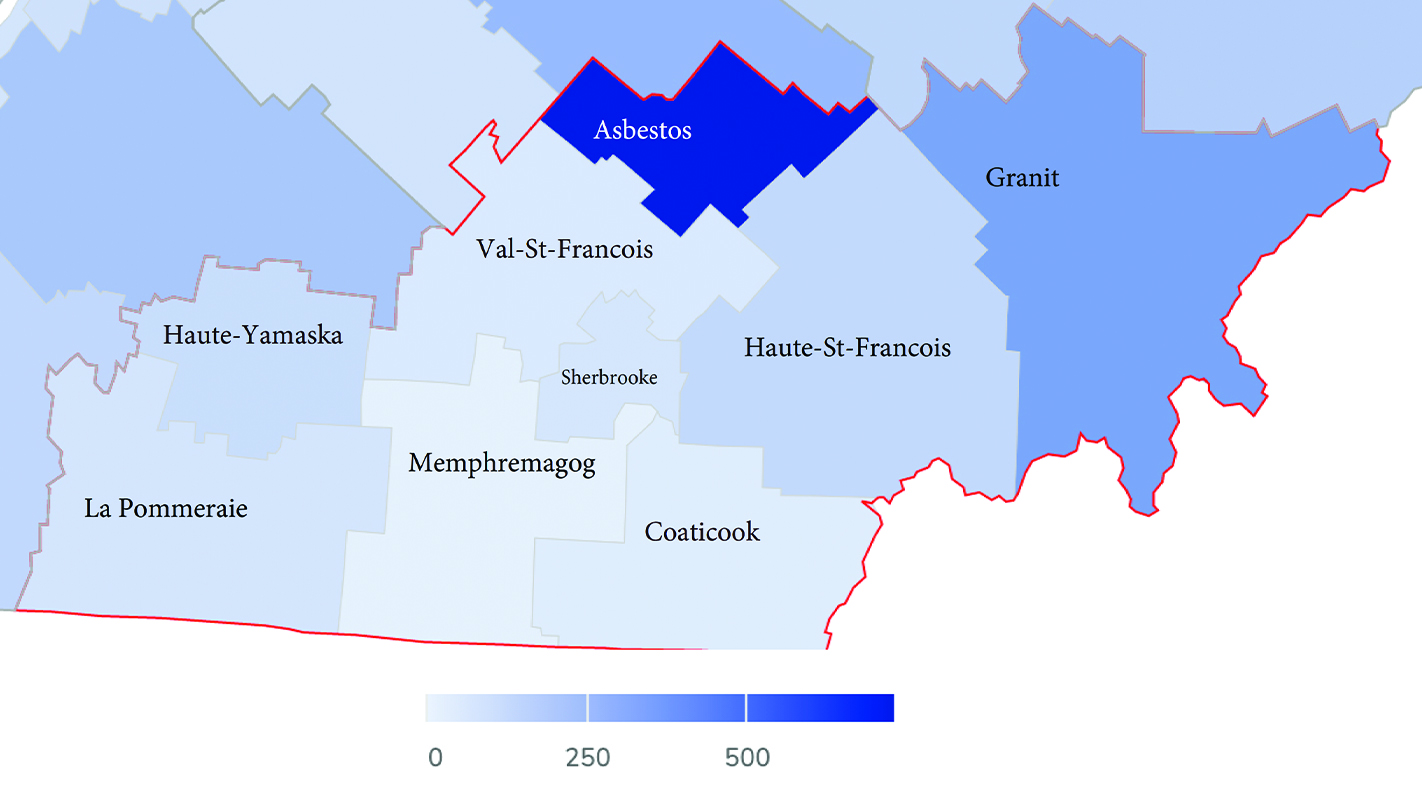Thursday at 12:01 a.m. the Estrie region will be moving to a ‘Red Zone’, or Level 4 Maximum Alert due to a recent spike in COVID-19 cases across the region.
To date, the region has been comfortable in the orange zone, where bars and restaurants have been operating, schools more relaxed, and gatherings among friends and families have been allowed but limited. During the first wave of the pandemic, the region experienced a general confinement for several weeks.
Moving from the orange to red means a new set of strict rules that the public must follow to ensure the safety of those living in the region. Level 4 Maximum Alert includes additional measures that extend to prohibiting non-essential activities in situations where risk cannot be sufficiently contained, all while avoiding the general confinement that was experienced during the first wave.
In all sectors where contact with an active case could occur, there is a set list of safety precautions specific to the spaces and operations of the sector. In homes, visitors from another address will be prohibited starting Wednesday night, except for those living completely on their own. A single visitor from another address will be permitted for single individuals, and it is recommended to always have the same person in order to limit social contact. Informal caregivers, individuals offering services or support, and laborers for planned work will continue to be allowed in the homes of their clientele.
In preschools and elementary schools, only one stable class group will be permitted at all times, but no physical distancing will be required within this single class group. In communal areas, students from different class groups must respect physical distancing measures. Extracurricular activities, field trips, and interscholastic activities will all be suspended, while special pedagogical projects may continue as long as all safety measures are observed carefully. Students are to eat lunch within their stable class group.
Room loans and rentals in preschools and elementary schools are to be suspended and visitors must be kept to a minimum. School staff must wear a face covering at all times in outdoor and indoor common spaces of the school. Daycare services within schools are to be organized with the same principle of stable class groups and maintaining physical distancing between groups.
These measures are also to be applied in secondary schools. Here, students are also asked to wear a face covering at all times inside the school and on school grounds. Secondary 3, 4, and 5 students who are not enrolled in specialized schools, education programs, or the Work-Oriented Training Path will attend in-person classes one day out of two, and optional courses must take place with physical distance between students or be offered through distance education.
In the adult general education and vocational training sector, students and staff must wear a face covering except when in classrooms where physical distancing is possible. Distance learning should be prioritized for programs where this is possible, and in-school attendance should be prioritized for students with special needs or who are at risk of dropping out of school. Here, extracurricular activities and field trips are also to be suspended.
On university campuses and institutions for higher education, activities should be offered through distance learning if possible. Internships and labs are permitted to continue, and libraries will remain open only to allow access to the circulation desk and individual workspaces.
All organized sports and recreational activities are suspended. Only activities carried out individually or in pairs are permitted so long as participants respect all health guidelines. Indoor sports facilities are remaining open for individual activities but dressing rooms, physical fitness rooms, and gyms are to be closed. Individual practice and training activities are allowed, but no competitions will be permitted.
For individuals in private seniors’ residences, only visits for humanitarian purposes and those by informal caregivers will be permitted, as this is a high-risk group.
All auditoriums, theatres, cinemas, museums, dining rooms, and bars are closed. Restaurants are able to offer delivery and take-out options. All private gatherings are prohibited, while places of worship and funerals may continue to operate with a 25-person capacity.
Businesses, stores, and boutiques will remain open, and personal and beauty care services will be maintained. Private professional and health services will only be open for services that require an individual’s presence, and community organizations will be able to maintain services.
Travel to other regions, no matter the alert which they are placed under is not recommended.
The city of Sherbrooke’s municipal offices will maintain services. A security guard will continue to control access to the building and people will have to respond to a questionnaire before entering. Anyone presenting symptoms of COVID-19 is asked to call ahead for any appointments, and online services will also be maintained.
Red Zone: what you need to know
By Reann Fournier, Special to The Record






